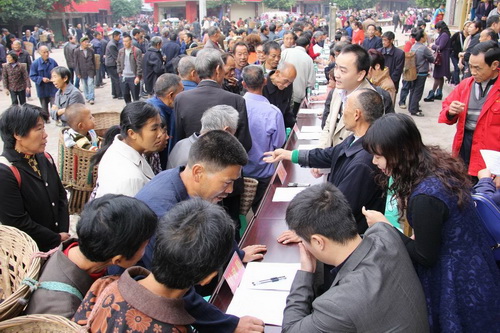Township Governments and Disorderly Grassroots Governance
2015-12-22
Zhao Shukai, Development Research Center of the State Council
Township governments are executive bodies assuming the responsibility for executing state power at township level. They carry out resolutions of the township people's congress, as well as decisions and orders of higher level governments, and fulfill the management of local township work. This indicates that the central government attempts to make township governments, through state power building, become organs of political power that can not only effectively carry out decisions of the central government and higher-level governments, but also win support and trust from grassroots communities. However, the actual role of township governments is neither compatible to local interests and needs nor to the requirements and policy orientations of higher-level governments and especially the central government. Against the backdrop of government operation in a “corporatization” manner, daily administrative functions of township governments as well as decisions and orders issued by governments of higher levels are no longer the major concern of township governments. The sole purpose of implementing various administrative orders and policies by township governments are nothing but showing off or boasting about their performances. Especially during inspection tours made by government officials of higher levels, in order to canvass their approval, township governments would by all means show off their “vanity projects” or “image projects” in proof of their policy implementation effects. The government mechanisms and policy decisions are not only undermined in terms of authority and value, but also ruptured in terms of system and structure. Since effective integration is hard to be achieved between township governments and governments of higher levels, between various government departments, and between grassroots communities, disorder of grassroots governance is thus induced. It is unfair to attribute the failure for addressing issues relating to agriculture, rural areas and farmers to disorderly grassroots governance as the root cause lies in government system or political mechanism. Hence it is imperative to clarify two issues at different levels. First, township governments should not be regarded as direct representatives of the central government because it is difficult for the central government or the state to directly control township governments. Second, although township governments should bear the brunt of responsibility for grassroots governance, the fundamental reason why township governments sometimes go wrong rests with government system. One major point is that the people's right to know or to be informed about the performance of township governments should be guaranteed so that grassroots governments could be supervised by the public. The general public is the main entity of supervision while grassroots governments are the main target of public supervision. But in real life although township governments would disclose some details relating to their operation, yet what are made known and what are not depend on, in many cases, the will of township governments rather than the desire of the public. Consequently, the information disclosed by township governments in a big way has little to do with the supervision of the public and is merely something for dealing with the inspection and evaluation by governments of higher levels. Such system operation is necessary for governments of lower levels to cope with examinations by governments of higher levels, whereas it is nothing but an empty shell to the society.















